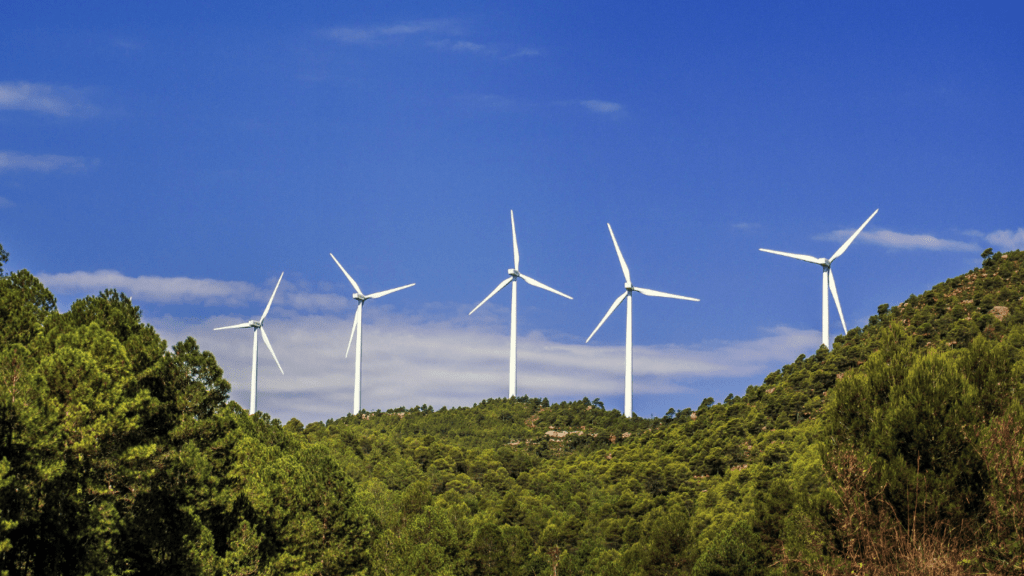In today’s fast-paced business landscape, the shift towards sustainable practices is becoming increasingly vital. As a small and medium enterprise owner myself, I understand the importance of embracing renewable energy solutions to not only reduce operational costs but also to contribute to a greener environment.
Renewable energy adoption in small and medium enterprises presents a unique opportunity for businesses to align their operations with eco-friendly practices while staying competitive in the market. From solar panels to wind turbines, the options for integrating renewable energy are diverse and offer long-term benefits for both the company and the planet.
In this article, I’ll delve into the various aspects of renewable energy adoption in small and medium enterprises, exploring the advantages, challenges, and best practices to help businesses make informed decisions towards a more sustainable future.
Current Trends in Renewable Energy for SMEs
Benefits of Adopting Renewable Energy
Switching to renewable energy sources offers numerous advantages for small and medium enterprises (SMEs). By investing in solar panels or wind turbines, businesses can significantly reduce their reliance on traditional energy grids. This not only leads to substantial cost savings in the long run but also enhances the company’s resilience to fluctuating energy prices.
Implementing renewable energy solutions can also boost an SME’s reputation and appeal to environmentally conscious consumers. Consumers increasingly prefer to support businesses that demonstrate a commitment to sustainability. Therefore, integrating renewable energy into operations can attract a wider customer base and improve brand loyalty.
Common Barriers to Adoption
Despite the benefits, several common barriers may hinder SMEs from fully embracing renewable energy. One significant challenge is the high initial investment required to install renewable energy systems. While the long-term savings are substantial, the upfront costs can be prohibitive for small businesses with limited capital.
Another obstacle is the lack of expertise and resources needed to navigate the complexities of renewable energy integration. Understanding the technology, regulations, and available incentives can be overwhelming for SME owners, leading to hesitation in adopting sustainable energy practices.
Overcoming these barriers often requires tailored financial solutions, specialized guidance, and government support to facilitate the transition to renewable energy for small and medium enterprises.
Renewable Energy Technologies Suitable for SMEs
When considering renewable energy technologies for small and medium enterprises (SMEs), several options can be particularly beneficial due to their efficiency, cost-effectiveness, and environmental impact. Let’s explore some of the most suitable choices for SMEs looking to transition towards sustainable energy practices.
Solar Energy Solutions
Solar energy solutions offer SMEs a reliable and eco-friendly way to generate electricity. By installing solar panels on rooftops or unused land, SMEs can harness the power of the sun to meet their energy needs. Solar energy systems are low maintenance, have a long lifespan, and can significantly reduce electricity bills over time. Additionally, through net metering programs, SMEs can even sell excess energy back to the grid, providing potential opportunities for additional revenue generation.
Wind Energy Innovations
Wind energy innovations present another promising option for SMEs seeking renewable energy sources. Small-scale wind turbines can be installed on-site or in nearby locations with suitable wind conditions. These turbines efficiently convert wind power into electricity, offering a sustainable energy solution for SMEs. While initial setup costs may be higher compared to solar energy, wind turbines can generate significant amounts of electricity, making them a valuable long-term investment for SMEs looking to reduce their reliance on traditional power sources.
Biomass and Bioenergy Systems
Biomass and bioenergy systems utilize organic materials such as agricultural residues, wood pellets, or biodegradable waste to produce heat, electricity, or biofuels. SMEs in industries like agriculture, forestry, or food processing can benefit from these renewable energy systems by converting their organic waste into energy sources. Biomass and bioenergy systems offer a circular economy approach, where waste materials are repurposed to generate clean energy, reducing operational costs and environmental impact for SMEs.
By exploring and leveraging solar energy solutions, wind energy innovations, and biomass and bioenergy systems, small and medium enterprises can take significant steps towards adopting sustainable and cost-effective renewable energy technologies. These options not only help SMEs reduce their carbon footprint but also enhance their energy efficiency, financial savings, and overall environmental stewardship.
Financial Implications of Renewable Energy Adoption
Transitioning to renewable energy in small and medium enterprises (SMEs) can have significant financial implications. Here’s a closer look at the financial aspects of adopting renewable energy solutions:
Initial Costs and Investments
Investing in renewable energy technologies often involves high initial costs, which can be a barrier for SMEs. However, despite the upfront expenses, the long-term benefits typically outweigh these initial investments. For example, installing solar panels may require a considerable upfront cost, but the savings on electricity bills over the years can result in substantial cost reductions.
Long-term Financial Benefits
One of the key advantages of renewable energy adoption for SMEs is the long-term financial benefits it offers. By generating their own renewable energy, businesses can significantly reduce their reliance on traditional energy sources, leading to lower energy bills over time. Moreover, as renewable energy technologies become more mainstream, the costs associated with them are expected to decrease, making them even more financially attractive for SMEs in the long run.
Case Studies: Successful Implementations
As I delve into successful implementations of renewable energy in small and medium enterprises (SMEs), let’s explore some remarkable stories showcasing the adoption of solar and wind energy solutions.
Solar Energy Success Stories
- Solar Panel Installation at ABC Bakery: ABC Bakery, a small-scale pastry shop, installed solar panels on its rooftop to harness the power of the sun for its energy needs. By investing in solar energy, the bakery not only reduced its electricity bills but also showcased its commitment to sustainability, attracting environmentally conscious customers.
- Solar Water Heating at XYZ Hotel: XYZ Hotel, a medium-sized hospitality establishment, integrated solar water heating systems to meet its hot water requirements. This eco-friendly initiative not only reduced the hotel’s operational costs but also aligned with its green initiatives, enhancing its reputation as a sustainable lodging option.
- Wind Turbine Implementation at DEF Farm: DEF Farm, a family-owned agricultural enterprise, opted for wind turbine installation to generate clean energy for its farming operations. By harnessing wind power, the farm not only decreased its reliance on conventional energy sources but also demonstrated its commitment to sustainability in agriculture.
- Wind Farm Collaboration at GHI Manufacturing: GHI Manufacturing, a medium-sized production facility, collaborated with a wind farm to purchase renewable wind energy for its manufacturing processes. This partnership not only reduced GHI’s carbon footprint but also provided a reliable and cost-effective alternative to traditional energy sources.
By exploring these real-world examples of solar and wind energy integration in SMEs, it becomes evident that renewable energy solutions not only offer financial benefits but also contribute significantly to environmental sustainability and eco-friendly practices.

 Carolyna Riteralo is a passionate contributor to the project, focusing on sustainable urban development. With her background in architecture and urban planning, she provides valuable perspectives on integrating green spaces and eco-friendly designs into urban environments. Carolyna works collaboratively with the team to implement strategies that enhance community well-being and foster a connection with nature. Her dedication to creating greener cities makes her a vital member of the project, as she helps shape initiatives that promote resilience and improve the quality of urban life.
Carolyna Riteralo is a passionate contributor to the project, focusing on sustainable urban development. With her background in architecture and urban planning, she provides valuable perspectives on integrating green spaces and eco-friendly designs into urban environments. Carolyna works collaboratively with the team to implement strategies that enhance community well-being and foster a connection with nature. Her dedication to creating greener cities makes her a vital member of the project, as she helps shape initiatives that promote resilience and improve the quality of urban life.